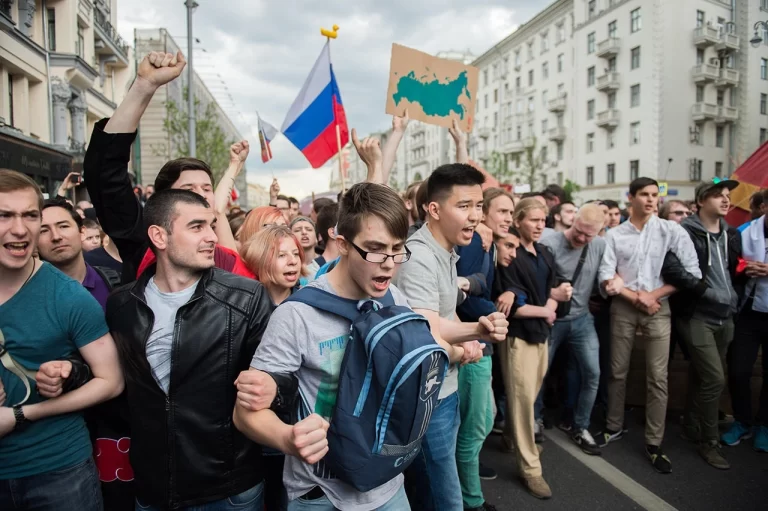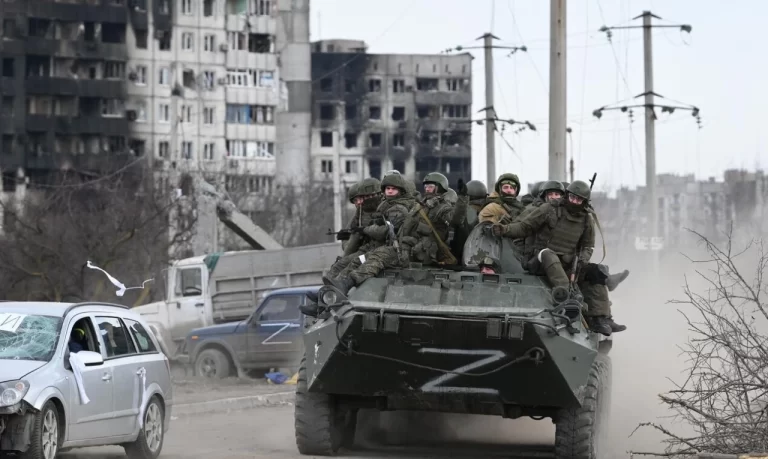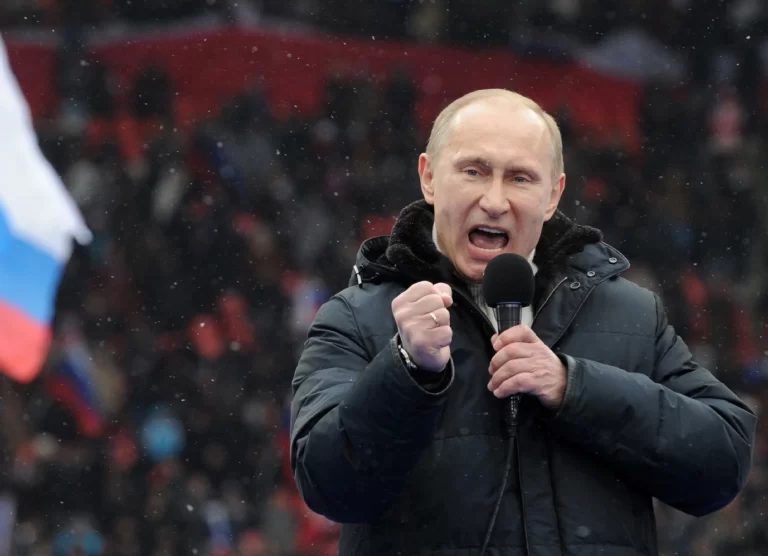According to sociological polls, the Trump-Biden political showdown in the 2024 presidential elections is becoming increasingly plausible. Preliminarily, 53% of Republicans are ready to vote for Trump in the GOP. Meanwhile, Joe Biden faces no serious challengers within the Democratic Party. Although Democrats underestimated Trump as a contender in the 2016 elections, much has changed. Trump’s presidential term from 2016 to 2020 demonstrated that the doomsday nightmare Hillary Clinton’s campaign team used to scare voters didn’t materialize.
Trump Strikes Fear into His Opponents: Political Expert Anzhelika Minaeva Highlights Uniqueness of the 2024 US Presidential Election
According to sociological polls, the Trump-Biden political showdown in the 2024 presidential elections is becoming increasingly plausible. Preliminarily, 53% of Republicans are ready to vote for Trump in the GOP. Meanwhile, Joe Biden faces no serious challengers within the Democratic Party. Although Democrats underestimated Trump as a contender in the 2016 elections, much has changed. Trump's presidential term from 2016 to 2020 demonstrated that the doomsday nightmare Hillary Clinton's campaign team used to scare voters didn't materialize. Additionally, Trump managed to control the foreign policy narrative, which usually doesn't play a decisive role in American elections - but not this time. Regarding Russia's invasion of Ukraine and the US's role in this conflict, there isn't a unified view among Democrats and Republicans or even within the parties themselves. However, Trump has cleverly tapped into the shifting public opinion on this issue.
Why are Democrats afraid of Trump?
Trump is entering the 2024 election stronger than ever before. His media presence in the American media has been amplified by lawsuits due to accusations of mishandling classified documents and allegations of sexual pressure on a woman from his distant past. However, a triumphant moment for Trump came in May 2023 when a four-year FBI investigation into Russian interference in the 2016 presidential election campaign concluded. The Justice Department’s Special Counsel John Durham presented a 316-page report criticizing the FBI’s investigation, dubbed “Crossfire Hurricane.” According to the document, the investigation should not have been initiated due to “insubstantial evidence.”
“Indeed, based on the evidence gathered in multiple exhaustive and costly federal investigations of these matters, including the instant investigation, neither U.S. law enforcement nor the Intelligence Community appears to have possessed any actual evidence of collusion in their holdings at the commencement of the Crossfire Hurricane investigation,” USA Today quotes Durham’s report.
Now, Trump’s team can turn the situation to their advantage. Firstly, Durham’s report compromises all pro-Democratic information sources that propagated suspicions about Trump. Secondly, a shadow of doubt is cast on the current legal prosecutions against Trump. Lastly, Trump appears as a genuine anti-elite leader, victimized by the “arbitrariness” of the Washington establishment.
The advanced age of incumbent president Joe Biden, seeking a second term, also adds dark clouds to the Democrats’ political horizon. The Republican media FOX News highlighted this vulnerability, publishing survey results indicating that over 60% of respondents doubted Biden’s mental and physical abilities to lead the country for a second term.
Moreover, the scare tactics used by Hillary Clinton’s campaign, which ultimately didn’t come to fruition, worked in Trump’s favor. During the 2016 election campaign, Democrats emphasized Trump’s unpredictability, arguing that he was too risky for the top office. Yet, the doomsday scenario they painted never materialized during Trump’s presidential term. It is hoped that Trump’s voters won’t shy away from expressing their electoral preferences to pollsters this time, resulting in more accurate sociological forecasts than in 2016.
Biden’s unenviable approval rating as President further shadows the Democrats’ political landscape. According to a Gallup poll from June 2023, only 43% of Americans approve of his job. This is the political landscape as it stands.
Now, let’s add a couple of strokes about foreign policy. Traditionally, Americans focus more on domestic issues during elections, showing little interest in foreign policy. However, in the last year and a half, U.S. expenditures supporting Ukraine in its confrontation with Russia have raised more questions among Americans about the rational use of taxpayer money.
Public opinion on this issue is reflected in sociological surveys. According to PEW Research, over a year and a half of war, the proportion of Americans who believe the U.S. is giving too much support to Ukraine has sharply increased from 7% to 28%. At the same time, the number of those who believe the U.S. is giving too little support dropped from 42% to 16%. The number of Americans who believe the U.S. is providing the right amount of support to Ukraine remained almost unchanged at 32%.
Moreover, when asked, “Do you approve or disapprove of the Baden administration’s response to Russia’sinvasion of Ukraine?” in March 2022, 47% of respondents answered “strongly approve” and “somewhat approve,” whereas by June 2023, the number supporting Biden’s policy had dropped to 39%. The number of unsure respondents had increased from 13% to 25%.
Furthermore, Americans have started paying less attention to events in Ukraine. While 36% closely followed the war in April-May 2022, by June 2023, that number dropped to 24%.
Hence, we see fatigue among Americans concerning the war in Ukraine and its associated expenses. Against this backdrop, Donald Trump appears as a “bird of peace” on this issue, responding to a new public demand.
“I want people to stop dying over this ridiculous war,”
“I think the biggest thing that the US should be doing right now is making peace – getting Russia and Ukraine together and making peace. You can do it,”
“This is the time to do it, to get the two parties together to force peace,” Reuters quote Trump.
Moreover, Trump asserts that had he been president, there would have been no war between Russia and Ukraine and that he would end the war within 24 hours if he became president in 2024. While Republicans condemn Russia’s invasion of Ukraine, they believe it to be a regional conflict that doesn’t fall within the sphere of the US’s vital interests.
With such propositions, albeit occasionally populist, Trump looks more appealing compared to the belligerent Biden administration, which sees the war between Russia and Ukraine as an existential struggle between good and evil, that should end with a complete defeat of Putin’s regime, no matter the cost.
Why is Europe afraid of Trump?
European experts’ analysis is rife with pessimism about the prospect of another Trump presidency.
Firstly, Trump has repeatedly criticized international alliances and organizations, which, in his opinion, the U.S. spends too much money on while European countries reap more benefits than the U.S.
Secondly, Europeans cannot be pleased with the prospect of auditing expenditures and returning overpaid U.S. funds for support to Ukraine, a measure Trump has periodically discussed, as well as the potential reduction of U.S. support for Ukraine.
Thirdly, Europeans suspect that Trump’s return to the U.S. presidency would embolden authoritarian world leaders with whom he “cultivated closeness,” such as Vladimir Putin and Kim Jong Un.
In this regard, some researchers somewhat surprisingly fear that “Trump would renew his deal-making ambitions, perhaps even succumbing to the temptation to seek a negotiated solution between Ukraine and Russia. “However, peace negotiations seem to be the war outcome that all conflict participants want to bring about as soon as possible.
In conclusion, the strengthening position of Donald Trump ahead of the 2024 presidential election poses a threat to the clear prospects of Joe Biden staying in the White House for another term. Trump’s reputation as an antagonist to the political elites of the U.S. and Europe only reinforces his authority among voters.






